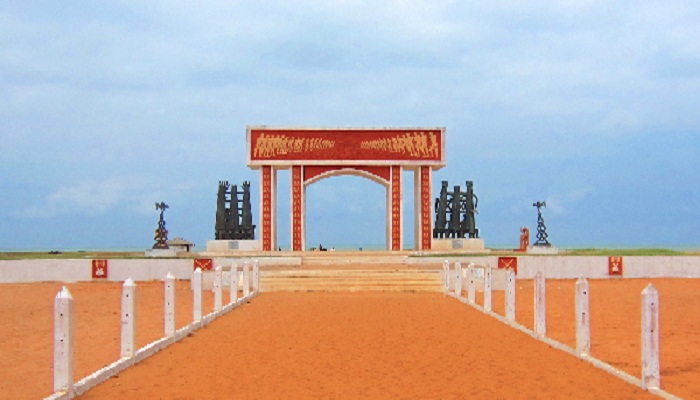Schools reopened on Monday in the West African state of Benin, but many students and their parents worried that mask-wearing and social distancing rules would fail to keep coronavirus at bay.
“The virus is still present and they’re making us attend classes,” complained Merveille Gbaguidi, a high school student in the capital Cotonou. “They could have let us stay home.”
Benin is among a growing number of African nations relaxing measures that have battered their fragile economies and large numbers of poor.
The government at the weekend launched mass coronavirus testing of teachers hoping to reassure parents. But many parents turned up at the schools to see for themselves whether anti-pandemic measures were in place.
“If everything is not done in strict accordance with the rules, I’m taking my daughter back home with me,” said Hermine Adanzounon, whose daughter attends a private elementary school.
The reopening of the schools — all but nursery schools and universities — after more than six weeks of lockdown has been a sensitive subject in the former French colony.
In late March students at Abomey-Calvi University north of the capital staged a demonstration to demand the closure of all educational institutions.
The demonstration turned violent, and one protester died.
– A question of means –
Under pressure, the government finally closed schools and universities and places of worship on March 22 and 23, but complained that it did not have the “means of rich countries” to enforce strict confinement measures.
Benin was one of the first African countries to make wearing masks obligatory in public when it introduced the measure in main cities and towns on April 8.
But on Monday, many students were not wearing masks. “It’s a question of money,” said final-year student Fred Amanvi, adding that the government should hand out masks at the entrances to schools.
The government in the country of 11 million has subsidised the cost of masks at the equivalent of around 30 US cents (25 euro cents) but that expenditure remains high for many on a daily basis.
“We were told not to turn away any student for not wearing a mask,” the director of a Cotonou middle school said on condition of anonymity.
Government-issue masks were available at least at one school, Sainte-Rita, where classes began at 7:00 am.
The school, like many others, has painstakingly prepared its spaces for social distancing.
“In the classrooms, the benches have been set out to observe the one-metre (three-foot) social distancing rule,” said Sainte-Rita director Maurille Monde.
As of Monday, Benin had officially recorded 284 cases of COVID-19 and two deaths.
The figure of those infected quickly doubled as screening was ratcheted up.
The authorities said that almost 14,000 tests were carried out between May 3 and 7, with the focus now on teachers and health workers.(AFP)

 Join Daily Trust WhatsApp Community For Quick Access To News and Happenings Around You.
Join Daily Trust WhatsApp Community For Quick Access To News and Happenings Around You.


